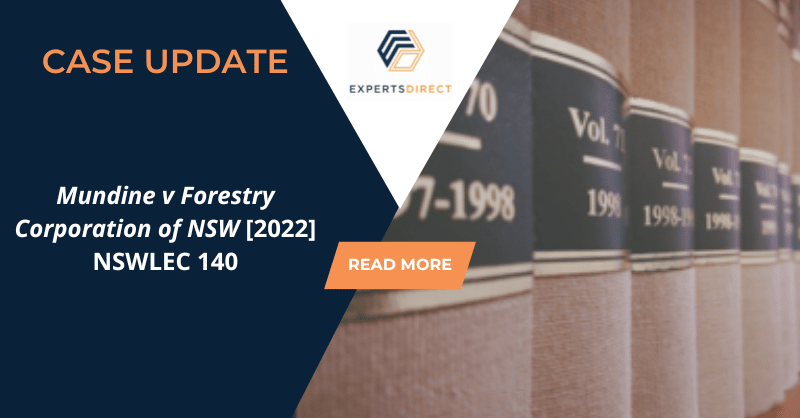In Mundine v Forestry Corporation of NSW [2022] NSWLEC 140, the overriding principle of the just, cheap, and quick resolution of a matter took precedence over the parties’ preference for presentation of evidence from multiple experts.
Duggan J heard two notices of motion in these proceedings seeking judicial review of approvals granted in respect of operational plans pursuant to the Integrated Forestry Operations Approval for the Coastal Region (CIFOA).
The Applicant, pursuant to rr 31.19 and 31.20 of the Uniform Civil Procedure Rules 2005 (NSW), sought leave to adduce evidence from three experts: two ecologists, Mr P and Mr M, and an archaeologist, Mr M.
Duggan J only granted leave to one ecological expert, and found there was no basis to justify granting leave to adduce expert evidence to an archaeologist since the case does not identify the cause of action relating to the impacts on Aboriginal cultural heritage.
The Court noted that the only matter raised by the Applicant that could genuinely give rise to the need for expert evidence was one relating to jurisdictional fact.
In reducing the three experts to one, Duggan J applied the principle that “Where expert evidence in judicial review proceedings is not reasonably required to resolve the grounds of review, leave under rule 31.19 should not be given.” [42]
Citing Giles JA in Shellharbour City Council v Minister for Planning (2011) 189 LGERA, Duggan J quoted:
“The primary purpose of the rule is to control the calling of expert evidence. Restricting it to that which is reasonably required to resolve the proceedings, having regard to the admonition of just, quick and cheap, that evidence may be relevant and admissible is not enough, let alone that it’s possible to argue that it is relevant and admissible.”
Duggan J was not satisfied that the issue raised for which the evidence is said to relate cannot be adequately and sufficiently addressed by a single expert. It was ruled that evidence should not be permitted to be called at large or by multiple experts, where one expert is sufficient to address all issues, “taking into account the dictates of justice and so as to ensure the just, cheap and quick resolution of the matter”. [53]
Key takeaways:
- Application for leave to adduce evidence from experts should set out in detail the substance of the evidence sought to be adduced.
- The purpose for which such evidence was sought to serve must be identified.
- If evidence sought to be adduced may adequately and sufficiently be addressed by a single expert, the Court may deny multiple experts based on the overriding principle of the just, cheap, and quick resolution of the matter.
Read the full decision here.
